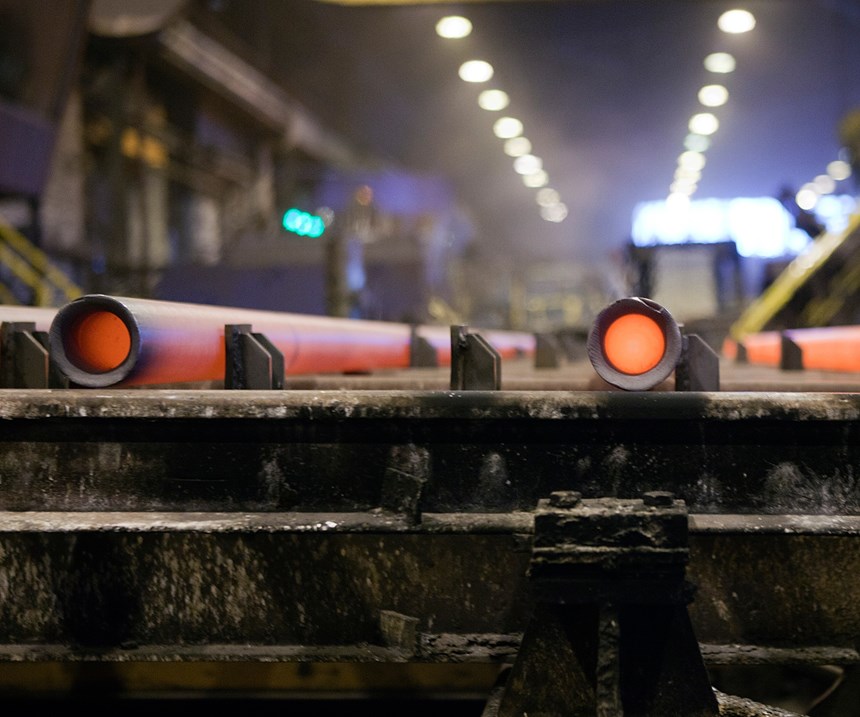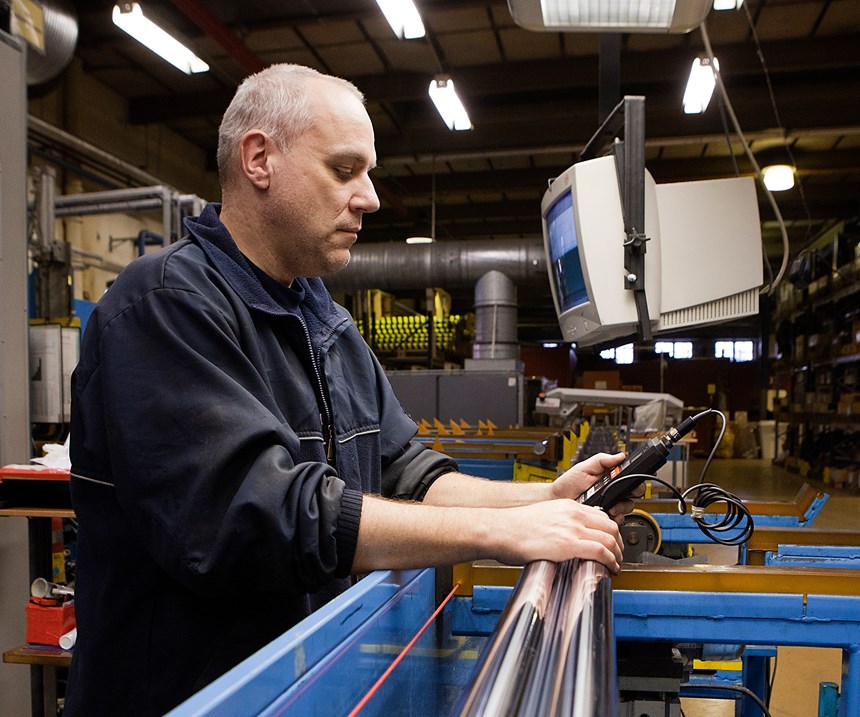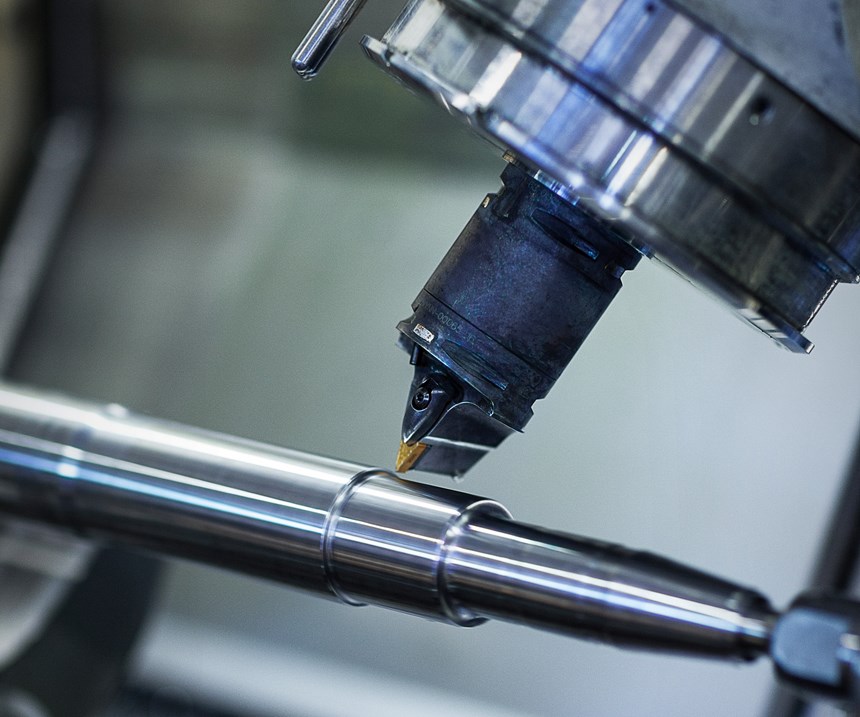Critical Steels for Critical Markets
I recently had the opportunity to travel to Sweden to visit three of Ovako’s steel mill facilities. Ovako’s production comprises primarily bar, tube, ring and pre-components in low-alloy steels that are often used for demanding applications such as in bearings, powertrains, hydraulic cylinders and rock drills.
I recently had the opportunity to travel to Sweden to visit three of Ovako’s steel mill facilities. I find that visiting the home office and seeing a company’s headquarters can be far more informative than reading about it, but for now, think of me as your proxy for Ovako.
Ovako’s production comprises of primarily bar, tube, ring and pre-components in low-alloy steels that are often used for demanding applications such as in bearings, powertrains, hydraulic cylinders and rock drills. All steel production is sourced from scrap, with no virgin ore (although the company does incorporate virgin alloys). As such, Ovako has developed into the Nordic region’s largest recycler of steel scrap.
The company has a total of nine production sites and is represented in more than 30 countries. It has sales offices in North America (Charlotte, North Carolina), Europe and Asia.
Mill Visits
While the company has been under the current ownership only since 2009, its history dates back considerably further. In fact, the site of the Hofors production facility has been used as a steel mill for almost 500 years. While automation has allowed the company to lower personnel needs, production continues to increase. Today, the Hofors location processes more than 500,000 tons of steel per year. While this is the company’s largest facility, the others are not far behind in production capacity.
The Hällefors location specializes in pre-components, creating blanks for customers in various sizes and levels of precision, applying radii, chamfers or round ends as specified by customer requirements. Most of these pre-components go to bearings, but other applications, such as engine components for the automotive industry, are gaining momentum here. The preliminary work done at this facility relieves the customer from the first step of cutting the bore to size, along with related space requirements for material and the logistics involved for the majority of the scrap handling.
In Hallstahammar, Ovako manufactures Cromax low-carbon, hard chrome-plated bars and pipes, mainly applied to piston rods for hydraulic cylinders. While the steel mill here dates back to the 17th century, and it has been processing peeled and ground bars here since 1909, the hard chromium plant was founded in 1982. Bars range from 15 to 25 feet in length, 0.5 inch to 6 inches in diameter. The company markets NiChrome finishes with an overall thickness of 0.0025 inch in the U.S.
M-Steel
One of Ovako’s more applicable products for the high production turned parts market is M-Steel, which is a low-alloyed or non-alloyed steel designed for superior machinability. It is said to provide for lower machining costs and faster throughput (as much as 30 percent compared with conventional steel) and lower the need for tool changes.
With the M-Steel treatment, which can be applied to any steel grade, non-metallic inclusions are modified and controlled with a specialized calcium treatment. This process maximizes machinability and improves transverse fatigue strength and impact toughness. It is inclusion modified rather than simply adding sulfur to improve machinability. By doing so a ceramic coating is established on the surface of the machining tool, which blocks transfer of heat and in turn allows for longer tool life and higher speeds.
M-Steel fits well in a lights-out/unmanned production machining environment because of the chemical consistency from heat to heat. Machines can be run with fixed high cutting rates and predictable tool change intervals from one production run to another.
Hybrid Steel
One of the more interesting experiences of the trip was learning about Ovako’s newest product, Hybrid Steel, which is designed to meet the demands of high-stress, elevated-temperature applications where mechanical and fatigue strength are critical. But instead of the expensive, small-batch processes traditionally used in the production of tool steels or maraging steels for such applications, this product enables high volume production at a competitive cost. Environmental demands and the need to reduce costs inspired its development. With it, Ovako brings together advantages of tool steel, stainless and maraging steels with the production economy of lower alloy engineering steel.
The alloying process for hybrid steel combines secondary carbide hardening and precipitation hardening to produce a steel that, according to the company, has shown to provide three times the yield and tensile strength of conventional steel at temperatures as high as 950°F. The properties of the steel are not fully developed until after tempering, and distortion is relatively low during this process. Therefore, manufacturers are able to machine parts to final dimension in softer condition and then put them through heat treating to achieve full strength, reducing the complexity and cost of the production process.
Worth the Trip
The visit to Ovako provided an in-depth look at the root of our manufacturing supply chain. I’ve had a couple of brief visits to mills before, but this was the most thorough look I’ve seen of the production of materials that eventually find their way into shops. Ovako does a good job of product development to meet customer needs while maintaining a respectable environmental consciousness. For another perspective on my time in Sweden and my visit to the company, read my column from November 2017, “Manufacturing Comes Full Circle” (short.productionmachining.com/fullcircle).
For more information from Ovako North America Inc., call 805-802-1500 or visit ovako.com.
Learn More
Here’s another article on this topic:
Material Selection for Machined Product Applications
Here is a checklist for selecting materials for making parts by precision machining.
LINK :: short.productionmachining.com/selectmat
Read Next
Material Selection for Machined Product Applications
Here is a checklist for selecting materials for making parts by precision machining.
Read MoreSeeing Automated Workpiece Measurement in Real Time
User-friendly inspection software for CNC machining centers was shown at IMTS 2024 monitoring measurements between and after machining while performing SPC based on recorded measurement values.
Read MoreA Tooling Workshop Worth a Visit
Marubeni Citizen-Cincom’s tooling and accessory workshop offers a chance to learn more about ancillary devices that can boost machining efficiency and capability.
Read More

















.jpg;maxWidth=300;quality=90)





